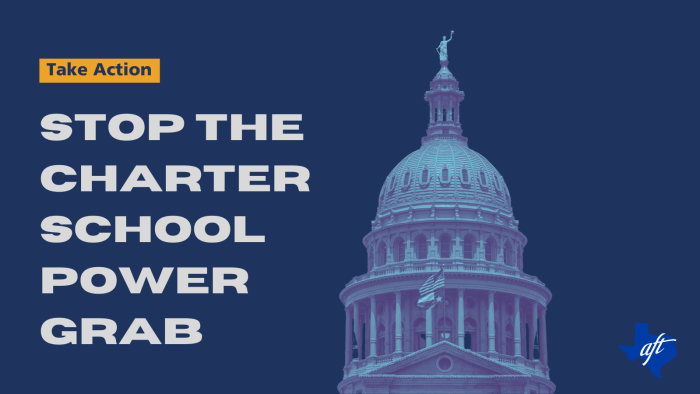The nation’s largest union, the 3-million-member National Education Association, has asked its members and allies to demand an end to federal dollars being spent on for-profit corporate charter schools.
“All schools that receive public funds should be held to the same excellence, equity, and transparency standards as district-run public schools," said the NEA in a statement released April 7. "The original intent of charter schools was to provide a space for educators to be more flexible and innovative."
The statement continued: “Instead, big business boards and billionaires turned it into a money-making machine that benefits only themselves. The growth of these corporate charters has undermined local public schools and communities—taking taxpayer money with no oversight or any overall increase in student learning and growth.
“The U.S. Department of Education is taking these very real issues seriously and is proposing an end to the support of corporate charter schools. We applaud this effort, but there will be loud voices paid by the billionaires running these schools to speak out against this positive step.”
NEA urged people to contact the department with comments favoring the ban on for-profit charter schools. But a reading of the Department of Education (DOE)'s proposal shows it doesn’t actually ban the corporate-run schools.
Instead, it sets higher financial standards for them, banning conflicts of interest and no self-dealing between for-profit charter school management firms and a school’s officials or board. It also tells charters they cannot have more school buildings than local public schools.
A charter school applicant must develop its school with “meaningful and ongoing engagement with current and former educators, including current and former teachers, including in founding the school, board governance (and) school-level decision-making related to curriculum and instruction, and day-to-day operations,” the agency said.
The charter school must also promise to use “a community-centered approach” in developing itself and its curriculum and must “interact with community assets on an ongoing basis,” DOE advised. Unmentioned in DOE’s notice: One big reason the nation’s two teachers' unions are skeptical of charter schools, especially in the South. There, they’ve often been set up to let white parents avoid sending their kids to public schools because they’d have to be with Black kids. The public schools in turn develop a student body that has students of color as its majority.

